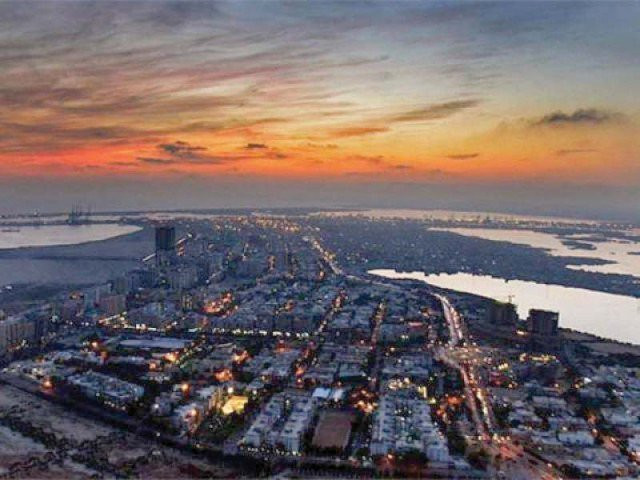Lack of access to banking facilities exacerbates economic woes
If depositor base is widened, it will foster economic growth, provide business and job opportunities

If depositor base is widened, it will foster economic growth, provide business and job opportunities. PHOTO: FILE
Indirectly, we can say that the number of people having no access to banking facilities is very high. This hinders economic growth, curtails economic opportunities and destabilises the economy.
For the past couple of years, Pakistan has been facing a large twin deficit - on the one hand, the country’s exports are very low and on the other hand tax collection is unsatisfactory. These things have led to increased reliance on external debt, due to which the country has to spend a lot on debt servicing.
The low number of bank depositors suggests that the financial system is not fairly developed and it will be not wrong to say that Pakistan is an undocumented economy. This feature facilitates tax evasion, helps increase circulation of black money, money laundering across borders, social imbalances, corruption and many other crimes.
Fall in exports worrying: Charter of economy – the way forward
However, if the depositor base is widened, it will not only foster economic growth, but it will also mobilise domestic resources, provide business opportunities to entrepreneurs and jobs to the jobless.
For the government, the domestic bank deposits could be a good replacement of external loans.
It is also necessary to know the major reasons that are responsible for the lack of access to financial institutions. These factors are socio-economic, religious and legal.
Among the economic factors, low income, high consumption, low savings, low rate of return offered by banks to depositors and presence of informal banking channels play a major role in restricting access to banking facilities. The dominant social factors include a high dependency ratio and big size of families. Among the religious factors, a big chunk of population says banking is against the principles of Islam. Legally, as compared to other countries, it is not compulsory in Pakistan to have a bank account for getting remuneration and payment of utility bills. This has further added to the problem.
The solution lies in purpose-based financial education, removal of illiteracy and proper financial legislation, while taking into confidence religious scholars and increasing the number of Islamic banking branches across the country.
Govt to unveil medium-term economic framework next week
While considering this issue very important, I collected data from the World Bank for the period 2004-16. A descriptive analysis suggests that on average there are 240 bank depositors out of 1,000 adult in Pakistan.
In the case of Bangladesh and India, the average number for this period is 390 and 967 respectively. This clearly suggests that in Pakistan the number of people having no access to banking facilities is high as compared to Bangladesh and India.
According to data, there was a dwindling number of depositors between 2007 and 2009, which may be because of the global financial crisis and overall poor performance of the economy during this period.
The graph provides a comparison of the number of bank depositors in Pakistan, Bangladesh and India. It clearly suggests that Pakistan underperformed in all these years.
The graph also shows that the gap between Pakistan and India widened from 2007 to 2016. However, in that period the number of depositors slightly increased in Pakistan as compared to India.
Here, the State Bank of Pakistan has to play an important role. On the one hand, the bank spread is increasing, but on the other hand, the number of bank depositors is not rising. Whether banks are out of the reach of people or people are out of the reach of banks? It’s a question that is still unanswered. The reason may be the lower rate of return on deposits being offered by commercial banks in Pakistan. It is less than the rate of inflation, which means, in real terms, people are losing the value of their wealth. The other reason may be that the number of bank branches is low due to which people have fewer opportunities to open accounts with banks. Moreover, reforms are also needed in the banking sector.
The government and the State Bank both should take initiatives to turn the “unbanked economy” into one where more and more people are able to open bank accounts, which will be better for the coming generations.
The writer is the assistant professor at the Department of Finance and Investment, NUST Business School
Published in The Express Tribune, January 28th, 2019.
Like Business on Facebook, follow @TribuneBiz on Twitter to stay informed and join in the conversation.



















COMMENTS
Comments are moderated and generally will be posted if they are on-topic and not abusive.
For more information, please see our Comments FAQ